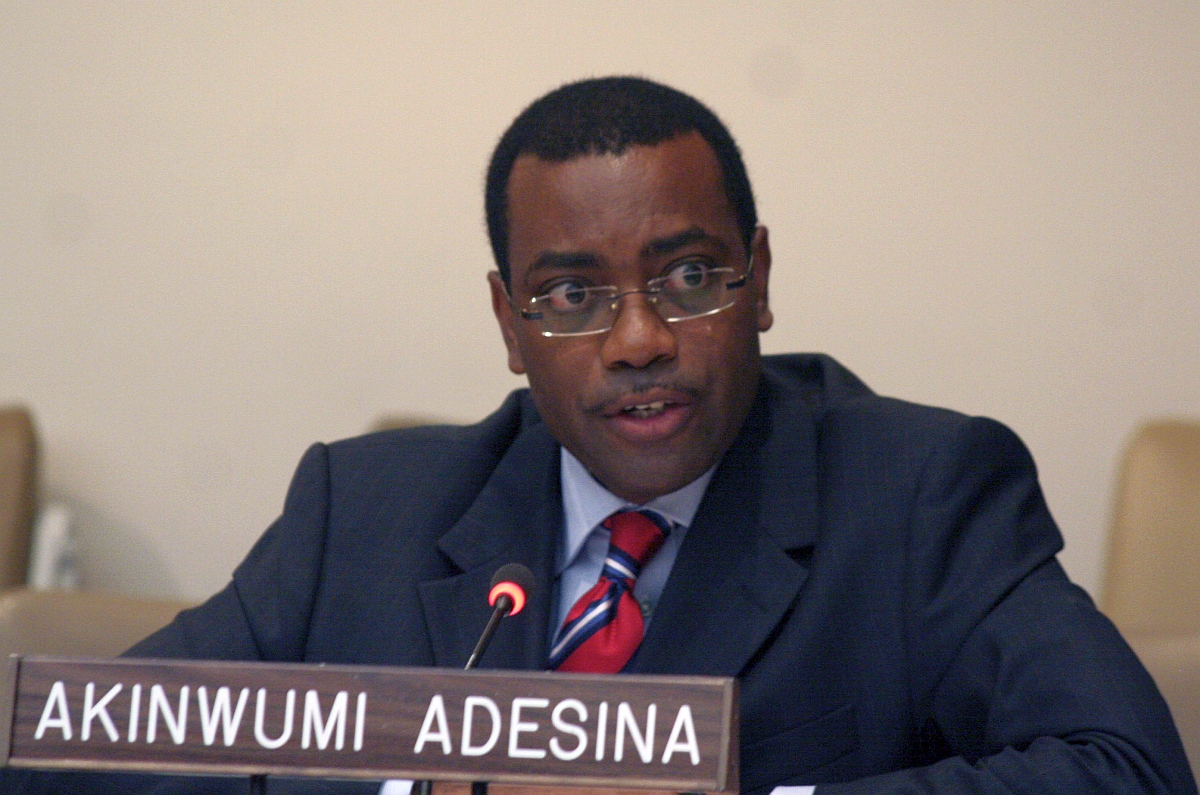Nigeria’s Minister of Agriculture Akinwumi Adesina, in the country’s outgoing government is the new African Development Bank (AfDB), President. He was elected yesterday in a competitive process that pitched him against seven other candidates that included finance ministers from Ethiopia, Chad and Cape Verde.
I am humbled by this remarkable vote of confidence in me by @AfDB_Group . I will not let Africa down. pic.twitter.com/4nu3HrVzo7
— Akinwumi A. Adesina (@akin_adesina) May 28, 2015
This will be the first time that a Nigeria has been elected by the board, made up of African states representatives and foreign donor governments. Mr. Adesina takes over from Donald Kaberuka (a former finance minister in Rwanda), who has served his full two terms of five-year each.
Adesina is praised for being a technocrat to whom much credit is given for the Nigeria’s agricultural sector being driven in a much commercial approach. He is also credited for boosting Nigeria’s domestic rice production and curbing the corruption that was bringing the process of allocation of fertilizer subsidies to farmers to its knees.
I’m honored & humbled by support I’ve received & the confidence placed in me. Our best days are ahead. #AfDBAM2015 https://t.co/QxNkLINsrr
— Akinwumi A. Adesina (@akin_adesina) May 28, 2015
Adesina certainly has his work cut out for him given the big shoe left by Kaberuka, which he is supposed to fill. Kaberuka has seen a dramatic expansion of the bank’s capital and influence in Africa over the last decade. AfDB at one point (in the aftermath of the global financial crisis back in 2007) let the bank into becoming the leading development lender to Africa even outdoing the World Bank.
Kaberuka also took office when the tides were finally turning in favor of the African countries; when the demand for the continent’s resources was improving globally, especially from China. The African consumers spending was also on the rise, and a significant amount of foreign investment started flowing into the continent. Kaberuka changed the bank’s lending priorities to focus more on infrastructure development.
Mr. Kaberuka while speaking to Financial Times said the greatest challenge his successor faces is to ensure that the bank’s lending will support a more inclusive growth. He cited the event that took place in Tunisia back in 2010 during the Arab Spring, as a warning across the continent of the dangers of income inequality.
“I do think that the next leadership of the Bank, and other institutions, must put this – economic transformation, inclusion, and sustainability – at the center of what they do,” – Kaberuka told Financial Times.
“Economic growth is only a means, but the end is economic transformation, and along the way, there has to be economic inclusion: it’s about expanding market power. It’s about expanding market diversity. It’s about creating a stakeholder economy.” He further added, saying the bank had a 10-year strategy that had adopted this mindset.
The AfDB released its annual report this week during the celebration of the bank’s 50th anniversary in Abidjan, Cote d’Ivoire. The report forecasted Africa’s GDP is expected to grow by 4.5% for the year 2015.
But the new AfDB President faces new and perhaps more complicated challenges. Some of the bank’s client states have a growing debt profile, and there has been a significant drop in commodity prices such as oil and mineral products.



